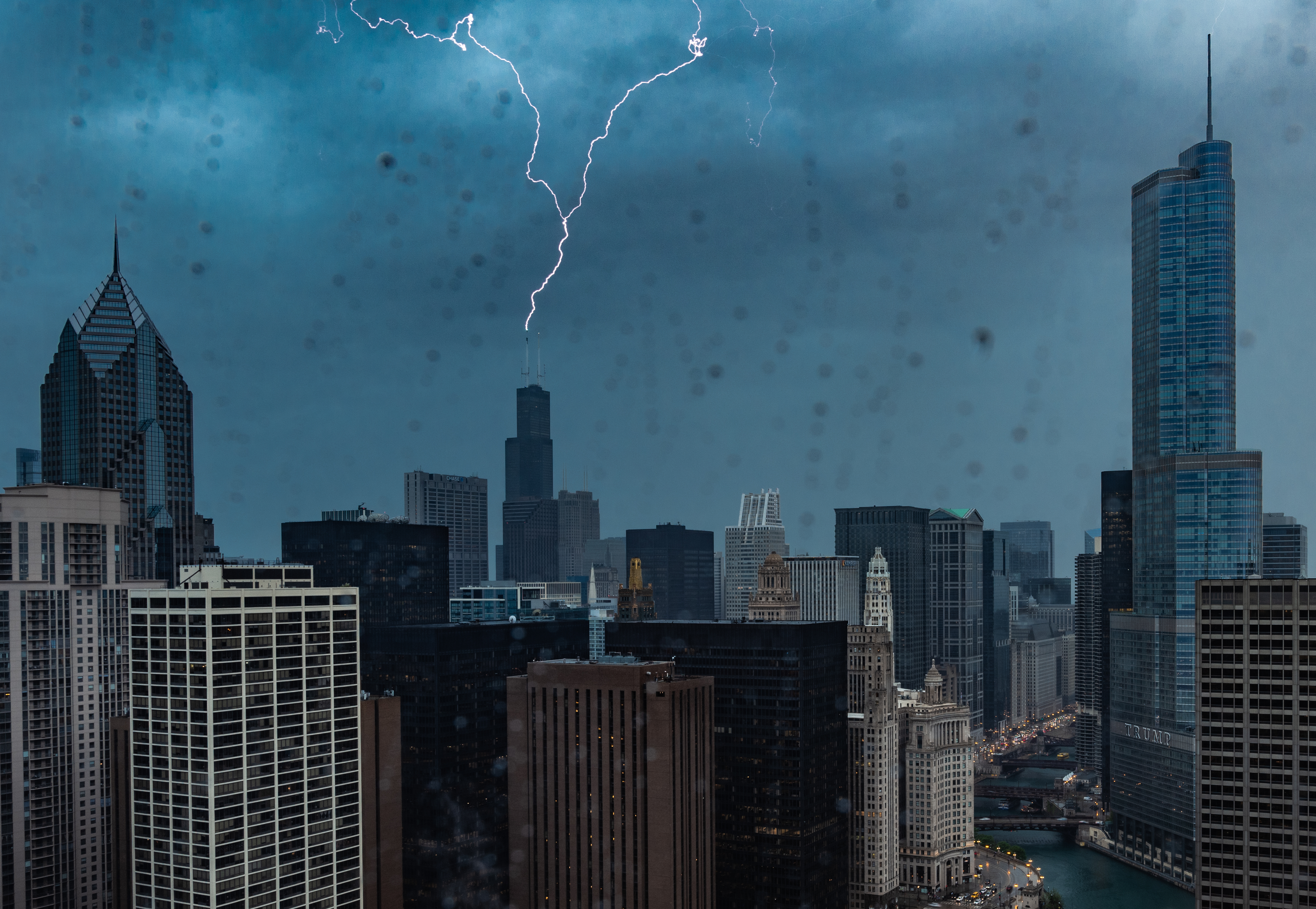Chicago's vaccine mandate kicked in Monday at bars, restaurants and gyms and most everyone who walked into Pequod’s Pizza in Lincoln Park was cool with showing proof they’d been inoculated against COVID-19 before sitting down to eat.
“Nobody has given us a hard time. In fact, the customers that did eat here were more appreciative than normal,” said Sean Asbra, the general manager.
“I think their mindset is: ‘I feel like if I’m eating in here we’re as safe as we can possibly be,’” he said.
He did have to turn a few people away, including a family with two kids who hadn’t had their second shots yet.
Feeling out of the loop? We'll catch you up on the Chicago news you need to know. Sign up for the weekly Chicago Catch-Up newsletter here.
“They went outside and ordered online and came by later to pick up their food. I thought for sure they’d give me a hard time, but they didn’t,” he said.
Starting Monday, patrons at Chicago restaurants, bars and gyms must show proof of vaccination and a photo ID before dining, drinking or exercising indoors.
Weekly testing will be enough for employees of those establishments. Mayor Lori Lightfoot agreed those workers don’t have to prove their vaccination status, a concession made to avoid exacerbating staff shortages that have already forced restaurant patrons to wait longer for their food orders.
Local
Gerard Mijatovich also left Pequod’s and ordered online to pick up later because his girlfriend hadn’t received her second shot. Mijatovich, 36, an ironworker from the Southwest Side, was nice about the inconvenience to employees of the pizzeria, but said on the sidewalk outside that he was irritated.
“This mandate is trash. It’s really limiting. It’s not right to force this on people. We don’t get the dine-in experience, we don’t get to be human. These are the things that are being stripped away,” he said.
“This is just taking away from quality of life, I’d like to see this end at some point. But how can you blame businesses and employees? They’re trying to tread water.”
About three blocks south, and a few minutes earlier, Lightfoot visited Club Pilates, a workout studio, to voice her support for businesses adhering to the mandate.
Before being admitted, Lightfoot showed a picture of her vaccination card on her phone to owner Abby Phelps.
“I didn’t check her ID because I was pretty sure I knew who she was,” Phelps said, joking.
“Hang in there,” Lightfoot told Phelps.
“My goal is to never shut down again and I hope that we won’t get to that point and I feel like we’re kind of in this surge right now but it will crest and come back down,” the mayor added. “And as I say to people, the answer to all these COVID questions is: vaccine, vaccine, vaccine.”
The mandate has cost Club Pilates a handful of customers who don’t want the vaccine forced on them, Phelps said.
“My response has just been that we’re following the rules,” she said, noting she’d gladly choose the mandate over capacity rules. When those were in place, she could offer only personal training sessions — no group classes.
Greg Hammell, general manager at Corridor Brewing in Lake View, said most people had their vaccine cards ready at the door Monday without even being asked.
“It’s been relatively smooth so far — knock on wood,” he said.
But with winter weather and many people still on holiday, business was slow, so Monday wasn’t a good indicator of how the mandate will play out, he said.
“We’ll have a better picture of its effect this weekend,” he said.
Lightfoot didn’t take questions from reporters at the pilates studio.
But in an interview earlier in the day on CNBC, she defended the proof-of-vaccination requirement for entertainment venues and other locations. “Massive community spread” in Chicago justified the rule, even if most people testing positive for Omicron experience only mild symptoms.
“While we’re not seeing the kind of severe outcomes that we had feared, the fact of the matter is, we have massive community spread. Which means people are getting sick. People aren’t able to go to work. And our hospitals are filling up, particularly with people who are unvaccinated,” the mayor said.
“So we’re taking these steps as a mitigation effort. And what we’re hearing from, particularly business people, is that they want to create a safe environment and they’re grateful for us imposing this vaccination mandate in entertainment venues — restaurant, bars, gyms and the like.”
Asked whether her primary motivation is to stop the omicron variant from spreading or if it is to increase “vaccine uptake,” Lightfoot replied: “It’s a little of both.” She pointed to what happened over the summer, when Chicago welcomed the return of Lollapalooza in Grant Park.
“People got vaccinated. We required a vaccination in order to get inside of the Lollapalooza footprint and, on every single day [of the festival], we had 90-plus percent of the people in there with the vaccine,” she said.
Lightfoot said she expects the omicron variant to peak “certainly by mid-January, if not a little later,” with a majority of downtown office workers returning to their desks “by the end of January going into February.”
Toward the end of last year, Chicago’s “big office towers” had roughly 45% occupancy. A lot of companies “had planned to bring their workers back” this week, but have “pushed it back one or two weeks because of omicron,” the mayor said.
“There’s a lot of ancillary businesses that depend upon that foot traffic. Whether it’s the lunch place, the shoe shine, the pharmacies, the dry cleaners. All of those businesses have taken a hit because we’re not seeing the traffic of people coming downtown and working,” she said.
“We continue to work with our business partners to do everything we can to get their workforces vaccinated. To make sure there’s adequate testing resources and to keep sending the message that the city is safe and they’ve got to bring people back. … I think we’ll get people back to work by the end of January going into February.”
Twice during the pandemic, restaurants and bars were forced to closed their doors to indoor patrons. In between, they suffered through varying capacity limits.
Asked whether future lockdowns were off the table, the mayor said: “Our goal is to make sure that we never shut down again. It was devastating for our economy, our small business people and employees. If we have to do that, certainly I’m not gonna take that off the table. But, my goal is that we never get to that place.”



